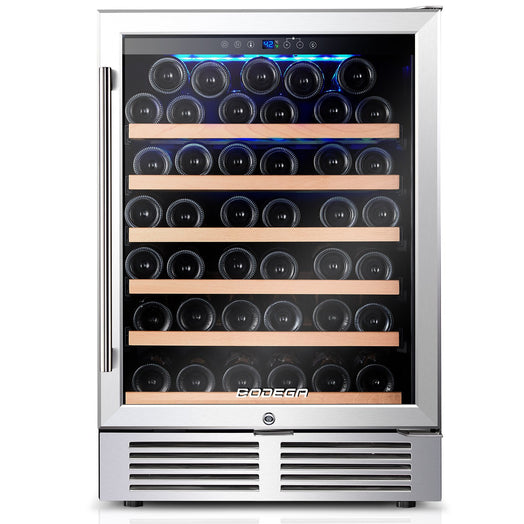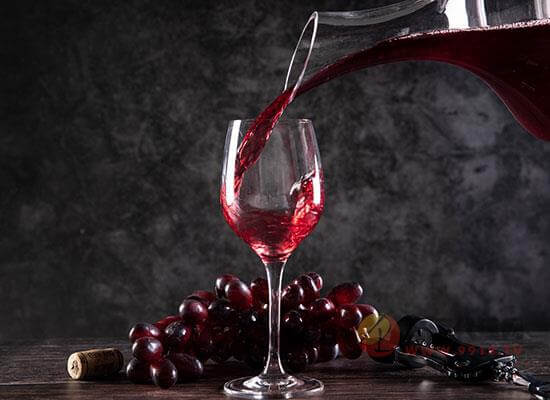Preserving our favorite beverages, the choice between a wine cooler and a refrigerator is often obscured by the commonality of their refrigeration compressors. However, delving into the nuances of their performances and functionalities reveals a tapestry of distinctions that can significantly impact the quality of your cherished wine collection.
Performance Variations
Contrasting Refrigeration Capacity: At the core, both the wine cooler and refrigerator share the fundamental concept of refrigeration. However, their refrigeration capacities differ significantly. While the refrigerator boasts a robust cooling capability suitable for a variety of food items, the wine cooler is designed with a more nuanced approach, catering specifically to the delicate needs of wine.
Specialized Cooling Capabilities: The refrigeration effect of the wine cooler is tailored to meet the general refrigeration needs of wine. It provides a controlled environment that promotes optimal aging and preservation, ensuring your wine collection matures gracefully.

Light Protection
Impact of Ultraviolet Rays: Light, especially in the form of ultraviolet (UV) rays, can have a profound impact on the aging process of wine. Exposure to strong sunlight can lead to the deterioration of wine over time. Here, the wine cooler emerges as the guardian of your collection, equipped with a UV-resistant glass door that shields your precious bottles from the harmful effects of light. In contrast, refrigerators lack this specialized feature.

Temperature Precision
Ideal Storage Temperature: The optimal storage temperature for wine hovers around 55.4°F. Achieving and maintaining this precise temperature is crucial for the proper aging of wine. Wine coolers take the lead in this aspect, employing professional precision compressors and temperature controllers that ensure accurate and stable temperature control. Refrigerators, while offering temperature settings, may exhibit a certain gap between the set and actual temperatures, creating a less stable environment for wine preservation.
Anti-Shock Mechanisms
Impact of Vibration: Vibration can accelerate the chemical reactions within wine, affecting its ripening process. In the realm of wine coolers, a precision shockproof compressor takes center stage. This specialized component operates slowly and steadily, significantly reducing vibrations that could compromise the quality of your wine. On the other hand, refrigerators lack this anti-shock mechanism, often subjecting your wine to subtle vibrations.
Ventilation and Humidity Regulation
Significance of Humidity: Maintaining the appropriate humidity is a critical factor in wine storage. Ideally, the humidity for wine preservation should be between 60% and 70%. Wine coolers, with their professional design, boast a perfect ventilation system. Activated carbon plugs at the top and bottom of the wine cabinet ensure fresh air circulation, while temperature differentials regulate internal humidity. Refrigerators, while proficient in their own right, may not match the precision of wine coolers in ventilation and humidity regulation.
Structural Differences
Multi-Temperature Areas vs. Constant Temperature: Refrigerators often come with multiple temperature zones, allowing for separate refrigeration or freezing of various food items. In contrast, ordinary wine coolers prioritize constant temperature refrigeration, offering a specialized environment tailored to the needs of wine storage.
Material Distinctions
Sophistication in Design Materials: The design materials in wine coolers are crafted with precision and sophistication. Shelves, crucial for accommodating wine bottles, are predominantly made of wood. This choice reflects a dedication to creating an environment that caters specifically to the storage needs of wine. In refrigerators, shelves are typically made of tempered glass and plastic, and while functional, they may lack the nuanced approach to wine storage found in wine coolers.
In the grand tapestry of choices, the decision between a wine cooler and a refrigerator becomes more than a matter of mere functionality. It transforms into a commitment to the art of wine appreciation, where every element—from temperature control to light protection—plays a vital role in preserving the essence of your collection.
Conclusion
Whether you prioritize specialized cooling, light protection, or anti-shock mechanisms, the selection process becomes a tailored experience, aligning with your vision for the perfect home for your wine collection. In this delicate dance of science and art, the wine cooler emerges as a sophisticated partner, understanding the needs of your wine on a level beyond the capabilities of a standard refrigerator.
FAQs
Q: Can I use a refrigerator to store wine if I don't have a wine cooler?
- A: While you can, it's advisable to invest in a wine cooler for optimal wine storage conditions.
Q: Do wine coolers consume more energy than refrigerators?
- A: Wine coolers are designed for efficiency, often consuming less energy compared to refrigerators due to their specialized functions.
Q: Can a refrigerator protect wine from light damage?
- A: While refrigerators provide some protection, the UV-resistant glass in wine coolers offers superior defense against light damage.
Q: Are wine coolers more expensive than refrigerators?
- A: Wine coolers can be more specialized and may have a higher initial cost, but their benefits for wine storage often outweigh the price difference.
Q: Do wine coolers require professional installation?
- A: While some may, many wine coolers are designed for easy installation and can be set up without professional help.

Read More about Wine
>>How to Place The Red Wine in The Wine Cabinet







